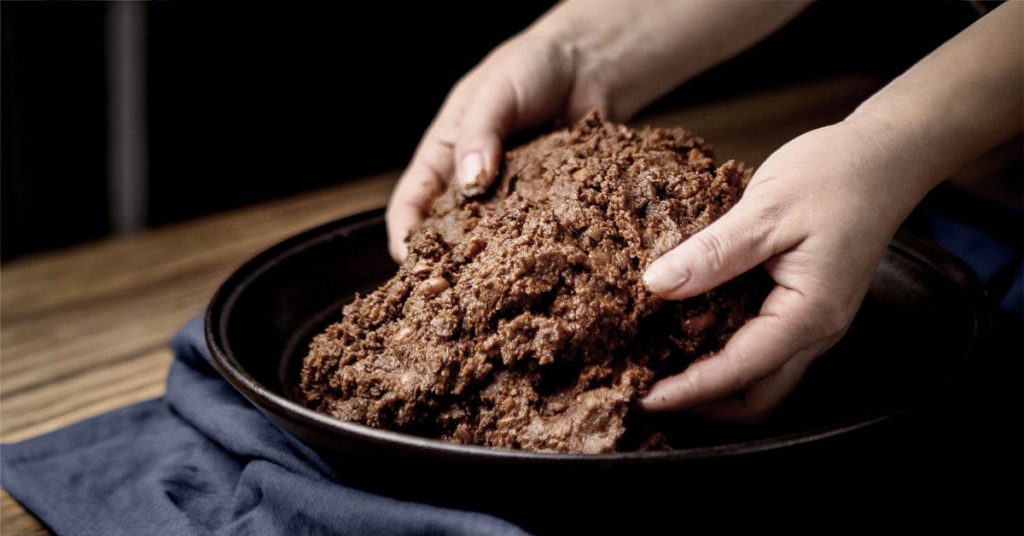A recent study examined the effectiveness of a traditional Korean soybean paste called doenjang in alleviating menopausal symptoms. Traditional doenjang was found to be more effective in reducing symptoms compared to commercially produced versions. Among the samples tested, the one with the lowest level of beneficial bacteria showed the strongest results. The study sought to determine if the higher bacteria content in doenjang resulted in better outcomes.
Doenjang, one of the oldest fermented foods in Asia, dates back over 2,000 years and predates miso paste. It is made from unpeeled, fermented soybeans and has a tangy, umami flavor with nutty and earthy undertones. However, both doenjang and miso can be high in salt due to the fermentation process. The study focused on the impact of fermented foods on the gut microbiome, particularly in relation to menopausal symptoms.
Researchers compared the effectiveness of different types of doenjang by measuring menopausal symptoms using the Kupperman index. Participants who consumed all three types of doenjang experienced a decrease in their index score, indicating a reduction in symptoms. Interestingly, the traditional doenjang with the lowest beneficial microbes was the most effective at alleviating menopausal symptoms. Only the traditional doenjang showed a decrease in LDL cholesterol levels, which can lead to cardiovascular issues.
The study highlighted the differences between traditional and commercial doenjang. Traditional doenjang contains beneficial microorganisms such as Bacillus subtilis involved in the fermentation process, while commercial versions are based on Koji with a shorter maturation period. The authors emphasized the ongoing research on the health benefits of various fermented foods, including Korean kimchi and Japanese kombucha. Although fermented foods are not exclusive to Asian countries and are also found in the West, more research is needed to understand their specific effects on menopausal symptoms.
Health experts not involved in the study expressed their opinions on the findings. Dr. Sarah E. Berry emphasized the need for more research on fermented foods and their potential benefits for gut and overall health. Registered dietitian nutritionist Kelsey Costa suggested incorporating a variety of fermented foods into a balanced diet to promote exposure to different probiotic strains. Both experts noted limitations in the study, such as the lack of a control group, short duration, small sample size, and potential influences of lifestyle choices on the outcomes.
While the study’s results are intriguing, further research is needed to fully understand the effects of fermented foods like doenjang on menopausal symptoms. The differences between traditional and commercial versions of doenjang suggest that the fermentation process and beneficial microorganisms play a significant role in its effectiveness. Incorporating a variety of fermented foods into a healthy diet may offer comprehensive health benefits, but more studies are required to determine specific effects on menopause and overall health.













